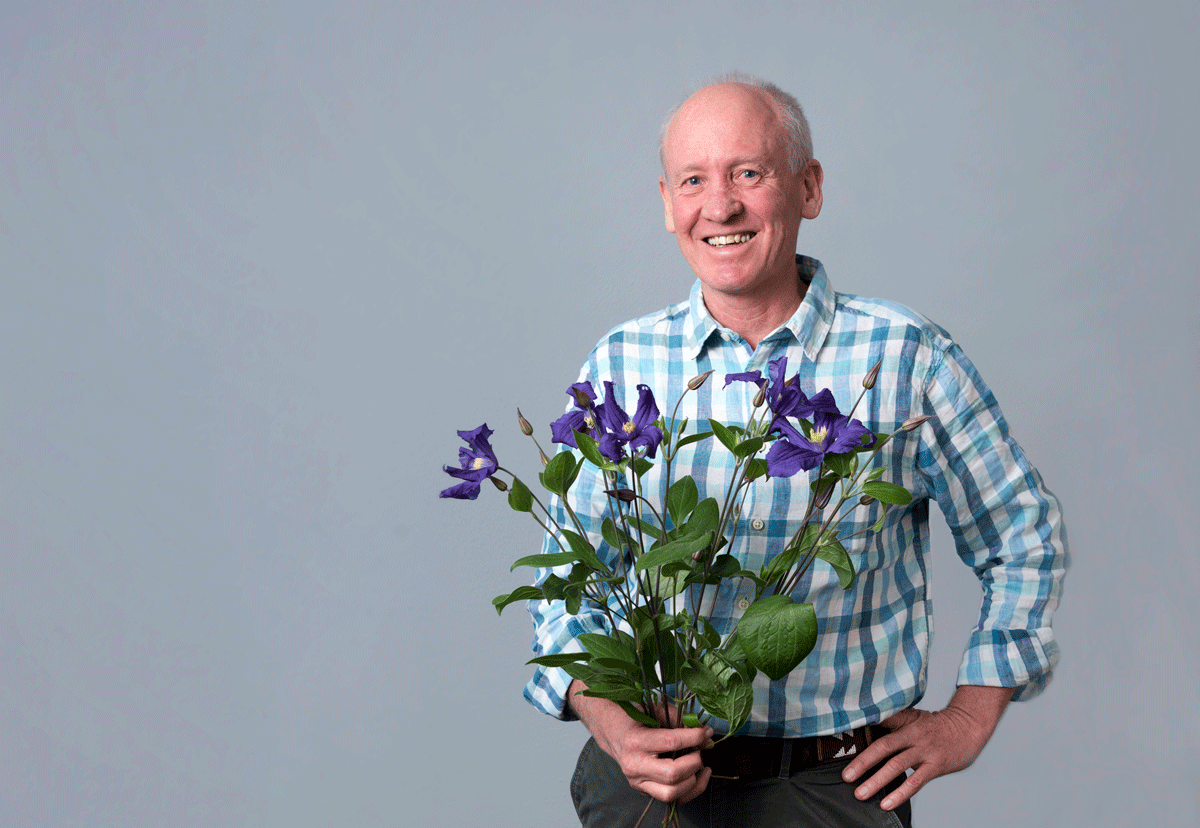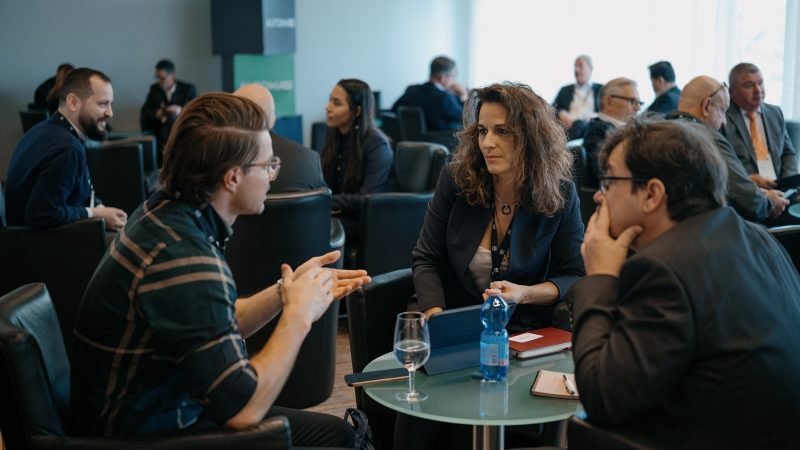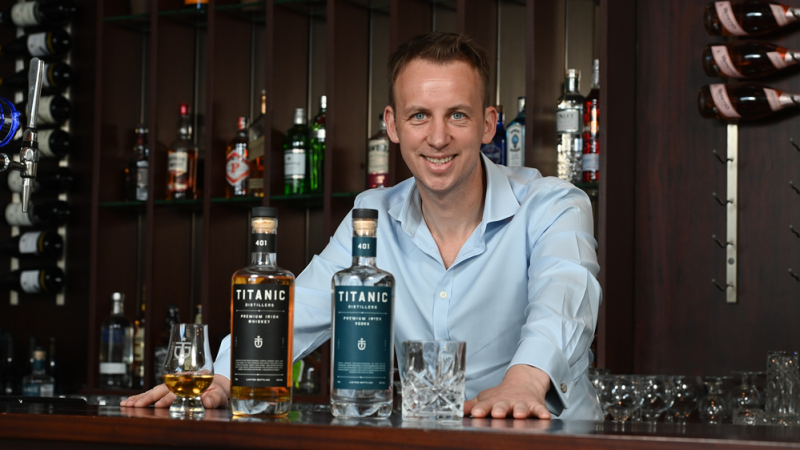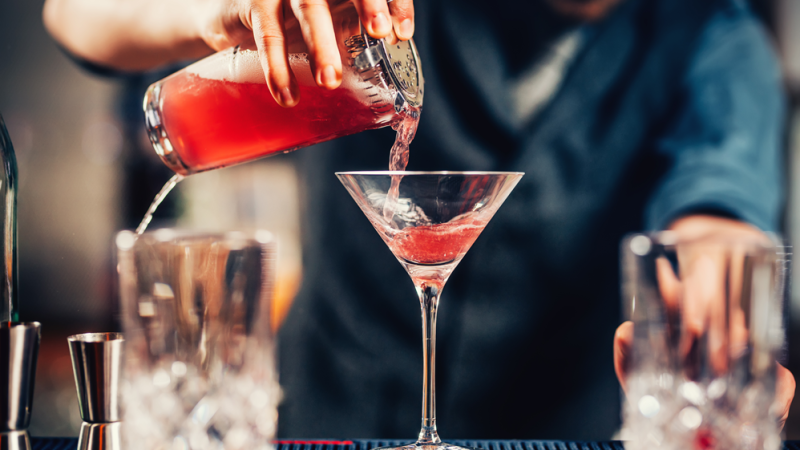Marginpar has come a long way since its early days in the 1980s when its founders, Bate and Jill Koning, became some of the first pioneers to introduce fresh-cut summer flowers grown on African soils delivered to European customers. Originally focusing on Zimbabwe, their business reached a turning point when they met Richard Fernandes, more commonly known as ‘Kiki’, a Kenyan entrepreneur and farmer who was at that time looking for a new business opportunity.
Kenya born and raised, Fernandes has been in agriculture all his life. After selling his vegetable growing business at the turn of the century as margins became too tight, he started to look at growing flowers. “At that time, roses were considered very promising, but I was looking for something different, non-rose, something not only special but ideally unique but also something that could be scaled up. Summer flowers, that means flowers that grow in European summers, seemed a good option.”
Unique conditions
A meeting with the Koning’s, who were at that time looking to expand into Kenya, came at the right time. Fernandes had a farm in Kenya and the expertise, Marginpar had a proven business model – a great combination for a successful partnership.
“Why grow summer flowers in Africa? The answer is the equator and the altitude. Because of the location, we have summer all year round so we can offer a consistent product in stable numbers throughout the year. The geographic variation in altitudes enables the growing of a wide range of flower products.”
“There are just a handful of places offering this advantage. Kenya shares these unique conditions with Ethiopia on the African continent, and with Ecuador and Colombia in South America. Nowhere else can you find altitude on the equator!”
“Today we have 460 hectares of flowers and produce around 300 million stems a year. We have close to 35 crops and some crops have multiple varieties. So altogether, there are over 100 varieties of unique, special summer flowers in our portfolio,” says Fernandes who shares the CEO position with Rob Koning.
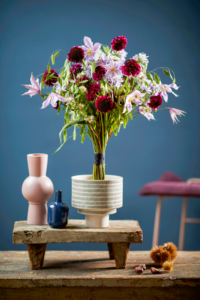 Model cooperation
Model cooperation
It is not only their exotic, unique summer flowers that make the business successful but the Marginpar business model itself. Through strategic partnerships with flower breeders Marginpar is able to offer its customers a selection of innovative varieties that are grown across four countries in Africa. In return, the flower breeders are offered a reliable and diverse production base for their intellectual property, under the guidance of Marginpar. After harvesting, the flowers are sold via Royal FloraHolland’s auction platform in the Netherlands and direct to an increasing number of strategic partners across Europe, Japan, Australia, China, the Middle East, and North America.
This model has worked very well. Fernandes started with one farm in Kenya, then developed a second, third, fourth. To spread the risk geographically, he then looked to Ethiopia and the expansion continued. Today Marginpar grows its flowers at 17 different geographical locations and altitudes, with seven farms in Kenya, three in Ethiopia, three in Tanzania and four in Zimbabwe.
The business reached a significant milestone in 2018 when the Kenyan and Ethiopian operations and Marginpar Netherlands merged into a single entity to form the Marginpar Group. “We realised we needed to work together more closely. At the same time, we needed to scale up,” says Fernandes one of the major shareholders. This led to doubling the size of the Kenyan operation through the acquisition of Carzan Flowers Ltd and Livewire Ltd.
Marginpar’s strategic partners in Tanzania and Zimbabwe add the extra dimension to the business, growing a different range of special interesting and unique Marginpar flowers due to the different climatic conditions that prevail in their respective locations.
Sustainable people’s business
The Marginpar Group today employs well over 5000 people in its various locations in Africa and the Netherlands. “What differentiates us from the others? We are trendsetting the market with dedicated people, who create the world’s most special and unique summer flowers,” says Fernandes. “We do this through a strong brand, a unique product range, strategic partnerships, and consistent quality. But overall, we are a people-focused business. Our slogan ‘We grow people, our people grow flowers’ says it all.”
“Marginpar’s operation is based on the culture of ‘servant leadership’. While a leader gives clarity on direction his major task is to support his people. With the right knowledge, the right equipment, the right working environment. At the end of the day, it is the people, and specifically teams of people, who make the business and deliver the results,” he affirms.
“For us, it is important to create a place where people are happy, where they feel valued, respected and where one’s opinion counts, an environment where people are running to work and walking home. Not the other way round. Of course, we need a profitable company. But it is important to get the right balance between profitability, return on capital, and looking after people as well as the environment. And that’s what Marginpar is about.”
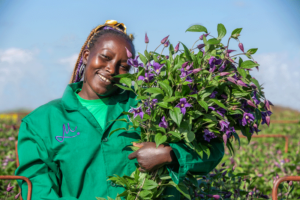 Making the world brighter
Making the world brighter
The company is a proud member of FSI 2025 and is committed to achieving 100% sustainable production. All of Marginpar’s own nurseries are fully certified and meet the Kenyan Flower Council (of which Fernandes is currently the Chairman) or outside Kenya the MPS standards covering the environmental, social, and good agricultural practice aspects. The company is looking at optimising the use of pesticides and fertilizer, moving to a more regenerative agriculture, and assesses its use of water and single use plastics, as well as looking to a more eco-friendly transport.
In terms of its social responsibilities, Marginpar has primarily focused on its locations in Africa, with a particular interest in the villages and communities that lie in the vicinity of the farms where its people come from. To further enhance the level of community engagement, a Marginpar Foundation has been established that will work with local communities to identify those areas for investment and support that are considered the most important by community members.
Speaking about the future, Fernandes acknowledges that further expansion is in the pipeline. “We are looking at growing the business horizontally, that is more land and more production, as well as vertically by expanding the supply chain. Flowers are recession-proof. Flowers have a lot of meaning, and even in this day and age, the emotional appeal of flowers is still there. So, demand continues, growing slowly in Western Europe and more dramatically in Eastern Europe, the Middle East and Asia.”
In concluding, he affirms that going forward, Marginpar will continue to enhance its strong brand with its unique product range, through people empowerment, strategic partnerships and by delivering consistent quality.
